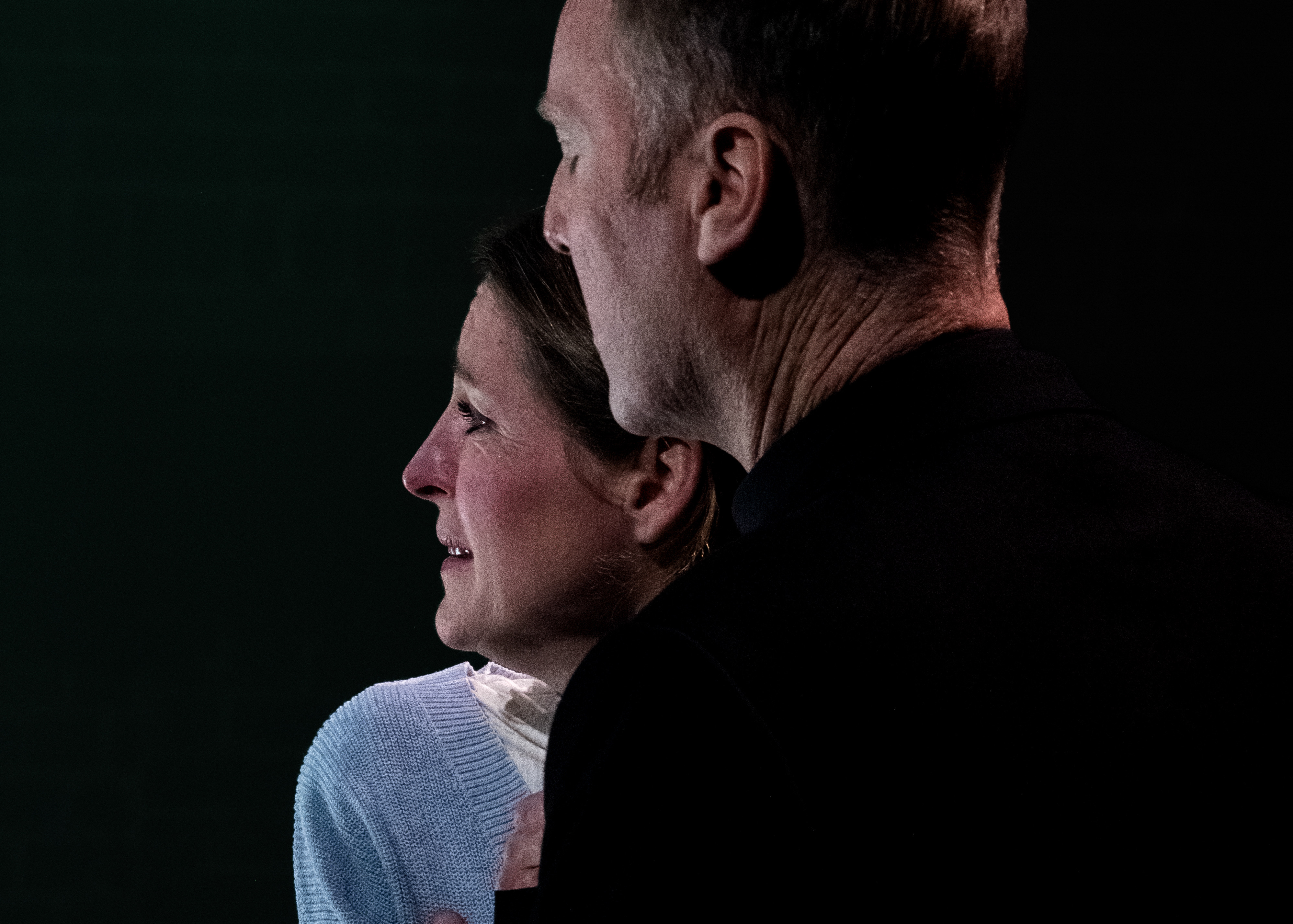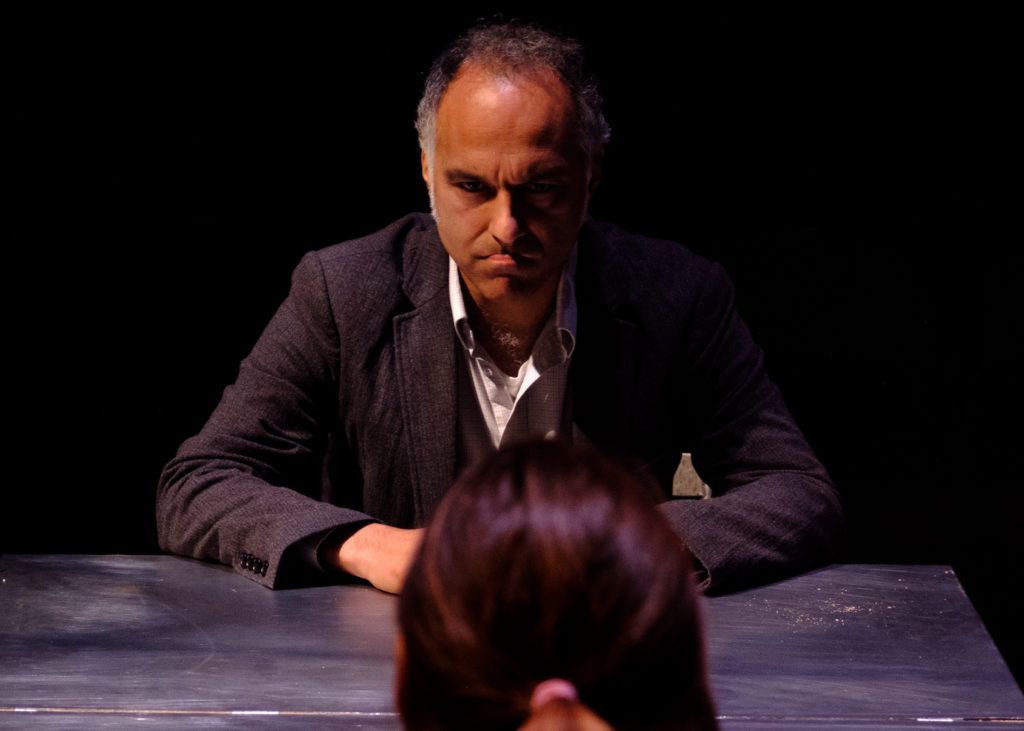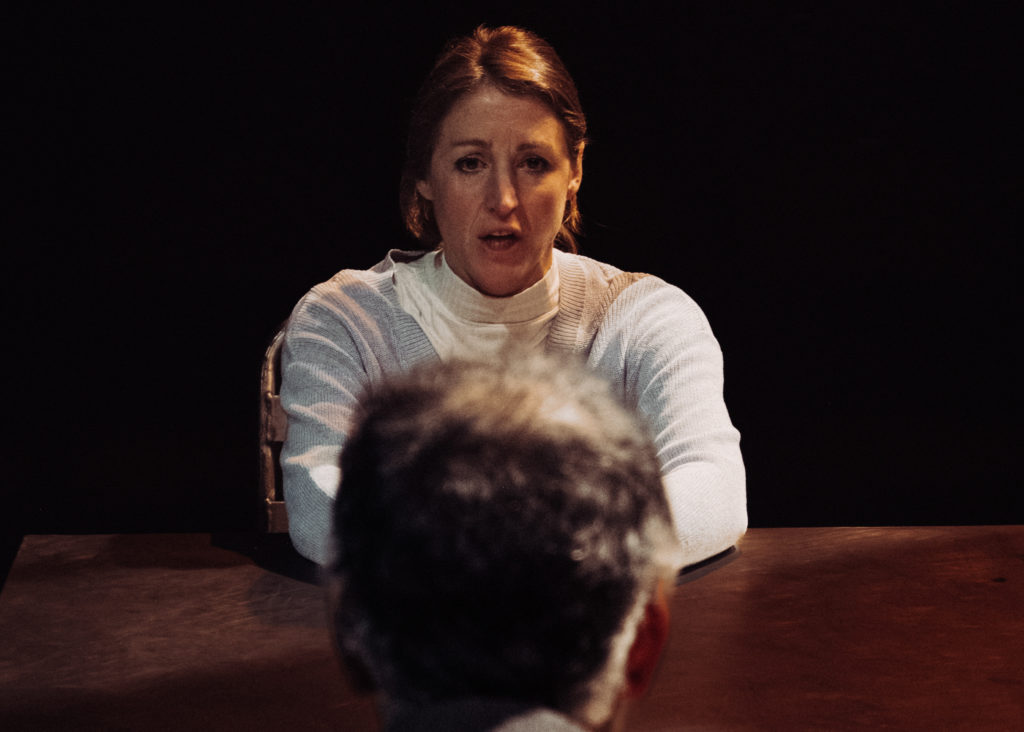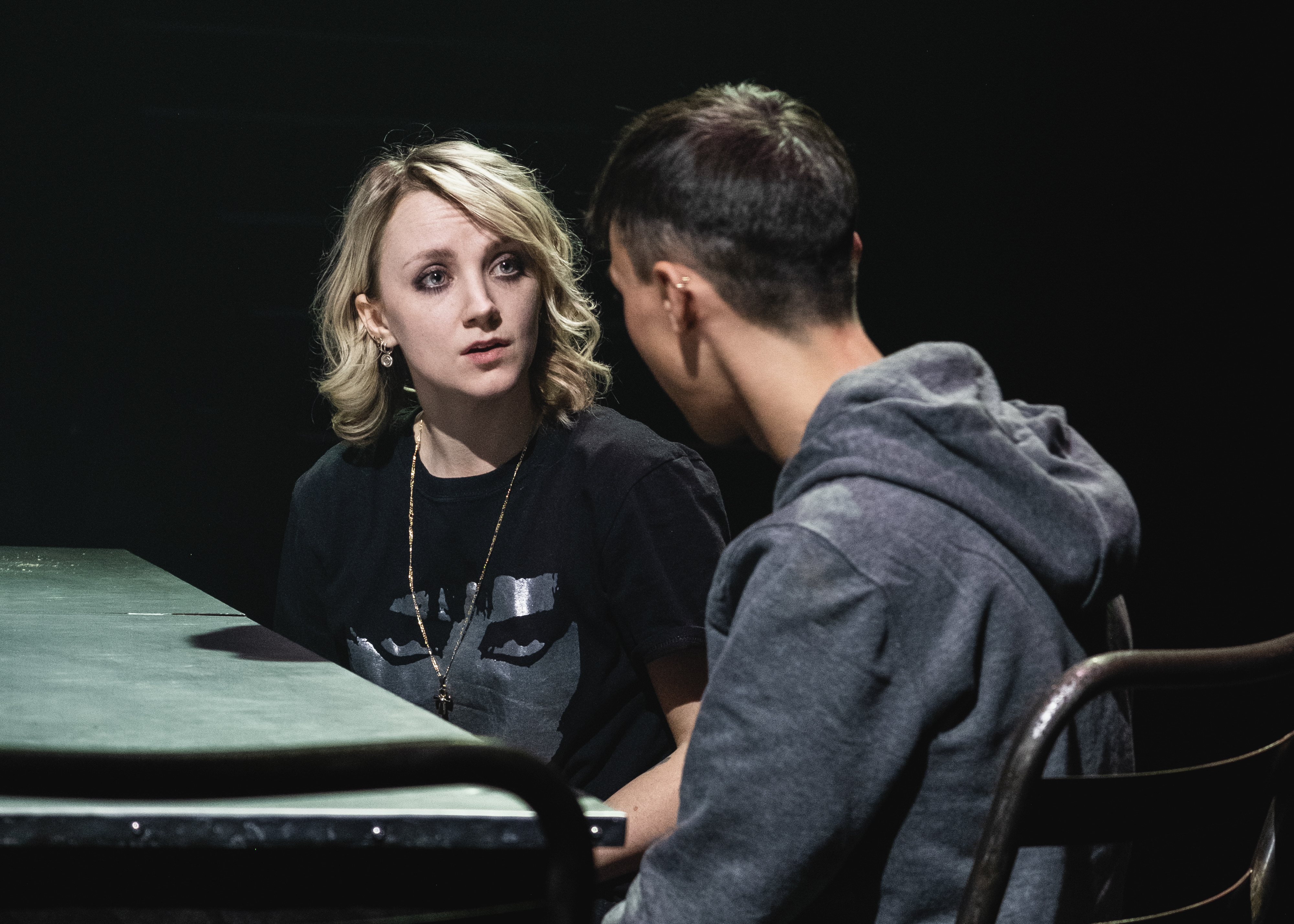Under The Black Rock – Arcola Theatre, London
Tim Edge’s darkly comic work Under the Black Rock, set in Northern Ireland during the Troubles, is a reminder of what’s at stake and a study in the long-reaching effects of violence.
Content warning: mentions of violence, torture, suicide.

Under The Black Rock
In a month where the political arrangements in Northern Ireland are back in the headlines, it seems timely that Dalston’s Arcola Theatre is staging Under the Black Rock. This new work, by Tim Edge, is set during the Troubles. Tracing the story of one family, it reminds us of the long shadow of pain and suffering cast over so many lives by this period of unrest and violence. Without such reminders, perhaps it is a little too easy to forget just how fragile the peace may be.
My UK audience will have some degree of knowledge of this conflict. For those who don’t, the Troubles were a period of political and nationalistic conflict, a ‘low level war’. They lasted from the late 1960s until the Good Friday Agreement of 1998. Under the Black Rock is set in 1980s Belfast, and centres on the Ryan family and their circle. Head of the family Cashel Ryan (John Nayagam) is deeply entrenched in the IRA. His wife Sandra (Flora Montgomery) is desperate to protect her children, but unsure how to achieve this. After son Alan’s (Jordan Walker) suicide, his sister Niamh (Evanna Lynch) is pulled in. We chart her development from timid new recruit to hardened member.
Against these familial scenes there is a second strand to the story. A whodunnit of sorts, or perhaps a noir film (Orson Welles’ The Third Man is referenced in the script and is a good comparison). Senior IRA figures Bridget Caskey (again Flora Montgomery), Jimmy Lynch (Matthew Blaney) and Brendan Swords (Glen Wallace) are in a game of cat and mouse, both politically and internally. Politically they seek to maximise the impact of their campaigns for leverage in upcoming peace talks. Internally they try to uncover an informant they know is in their midst.

Gallows Humour
These are big topics to wrestle with, and the play does not shy away from scenes of violence and torture. If you’re squeamish, be prepared to look away on occasion. I did. There is however a strand of dark comedy throughout the play which helps to alleviate what could otherwise be a difficult watch. At the vanguard of this gallows humour is Mary O’Brien (Elizabeth Counsell). Counsell’s comic timing, and the juxtaposition of a nice church-going old lady who is unfazed by the goings on of the IRA, prevents the story from becoming too oppressive.
Speaking of oppressive, let’s pause for a moment on the title. The ‘Black Rock’ refers to the physical setting of Belfast. The volcanic landscape under which people are born, live and die. Metaphorically, it stands for the weight of expectation (community, religion, family) which serves likewise as a sort of predetermination of one’s path in life. Within an interpretation director Ben Kavanagh describes as ‘expressionist‘, Ceci Calf’s set design consists mostly of a literal black rock. The rock hangs over the stage and threatens to crush the characters at any moment under its weight. It largely works in the Arcola’s unusual theatre space (a former paint workshop). A bold choice, in any case.

Final Thoughts
For me, Under the Black Rock feels like an important and timely play, but is not necessarily one that will be to everyone’s tastes. For its many strengths (including excellent lighting and sound design by Joseph Ed Thomas and Ben Kavanagh, there are also drawbacks. Several actors play multiple characters, which I initially found a little hard to parse. The stage set up with seating on three sides is largely effective, but I did find myself watching the backs of actors’ heads for some emotive scenes.
For those who do book a ticket, there are some good performances to look out for. I enjoyed Elizabeth Counsell’s portrayal of Mary O’Brien, for one – she is a delight whenever she’s onstage. Matthew Blaney is chilling as Jimmy Lynch, applying cold precision to his operations in the belief that the end justifies the means. And Evanna Lynch, best known for her role in the Harry Potter films, brings poise to the complex character of Niamh, a bridge for the audience into the world of the IRA.
Under the Black Rock is a study of how violence changes people, how it impacts lives both directly and indirectly. If you like your theatre dark and politically engaged, then this is a good choice. If you find the likes of Shakespearean tragedies harrowing in terms of the pile of bodies they leave in their wake, then bear this in mind and don’t say I didn’t warn you.
Salterton Arts Review’s rating: 3/5
Under the Black Rock on until 25 March 2023

